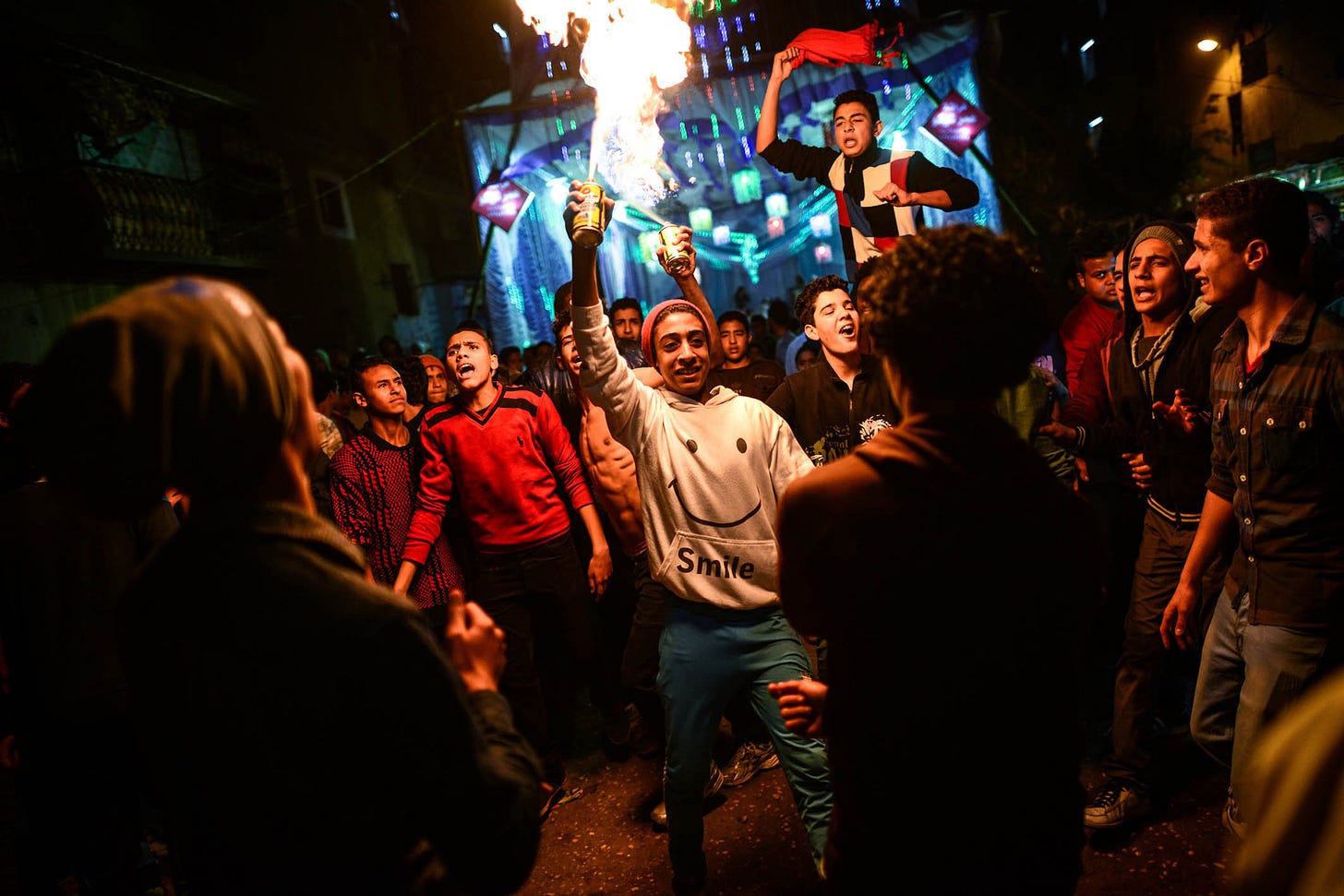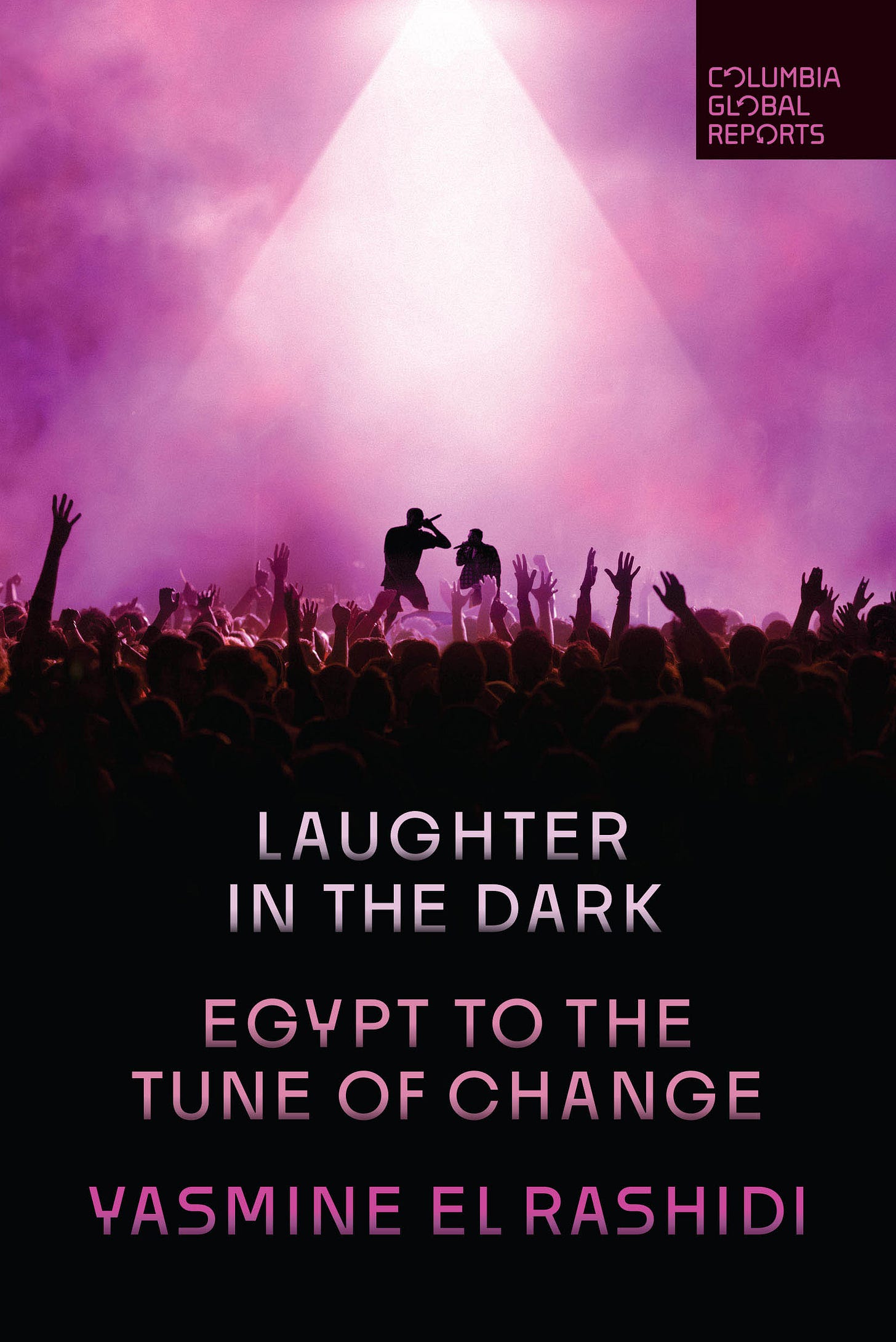Review: Egypt's revolution is neither dead nor done
The country's controllers would do well for themselves to let the poor have their music – if not jobs
Jacqueline Nyathi

In her latest book, Egyptian journalist and author Yasmine El Rashidi updates readers on the state of affairs in Egypt through the lens of mahraganat, the underground street music scene there.
Mahraganat is the music of the people in working class neighbourhoods known in Arabic as manatiq shaabiya. Its state is telling of the wider country’s frictions.
Under the current President Abdel Fattah El-Sisi, the army has encroached on businesses and political life, with military-connected companies taking huge infrastructure projects including the controversial reconstruction of old and storied parts of Cairo.
Sixty percent of the country’s population is under the age of 25 yet jobs are scarce for young people. In this climate, the rise of mahraganat feels predictable. Taking inspiration from hip-hop elsewhere, young men like Alexandria’s Marwan Pablo rap about their lives and hopes.
Egypt, says El Rashidi, is also at its “most oppressive point in its modern history”. Official censorship has heightened as the leaders face-off with younger citizens who came of age during or since the Arab Spring revolution of 2011, and don’t have “inherited silence” from Hosni Mubarak’s days when citizens did not dare comment publicly on politics for fear of being disappeared or worse.
Mahraganat’s undertones of political criticism have caught the attention of government’s censors at the Egyptian Musicians Syndicate.
Laughter in the Dark: Egypt to the Tune of Change chronicles government control of mahraganat in recent years. Artists are required to audition for a licence to perform or banned outright. Ramy Essam, one of the voices of the 2011 revolution, was harassed into exile. Sadat moved to France. Wegz, the only musician who seems to have escaped the crackdown, and whose music is more acceptable to the government and conservative public, is tellingly not from the working class.
The flashier artists, like former actor Mohamed Ramadan, have achieved international renown with performances in the United States, Qatar, Dubai and Saudi Arabia, and manage to evade censorship that way. However, others who are not positioned for that, like 3enaabb (formerly known as 3enba), try to toe the government line.
Yet, suppressing working class music can itself trigger the same energies authorities hoped to diffuse. In nighttime Cairo, frustrated young men turn to hooliganism for release; playing loud music in residential areas, consuming alcohol and occasional drugs in public, breaking bottles, littering and harassing women. “I throw bottles because it feels good,” one youth said to El Rashidi. “It’s like a release.”
Egypt’s demographics and extreme wealth inequality make it once again ripe for change. In Laughter in the Dark: Egypt to the Tune of Change El Rashidi shows that the mahraganat scene is an indicator of undercurrents that may lead to social unrest.




